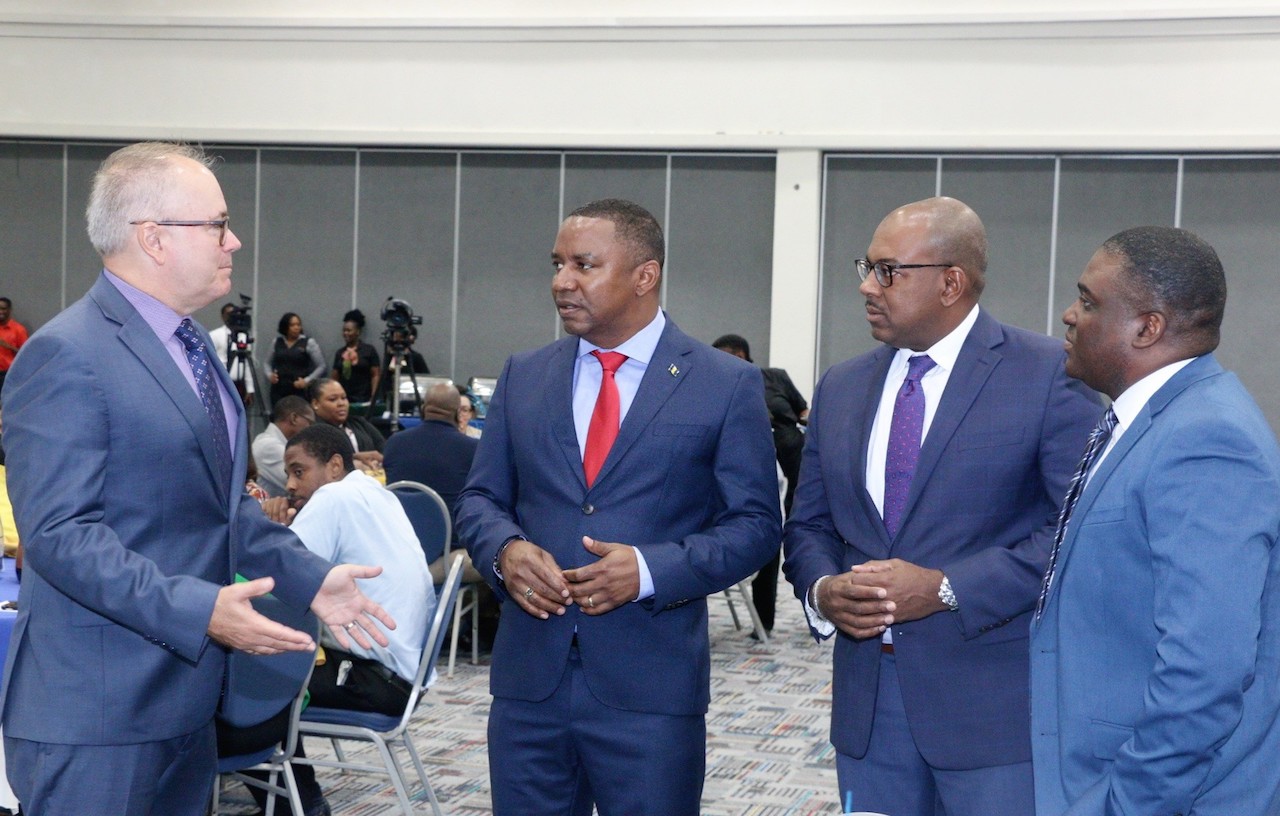As firms continue to emerge from the fallout of the COVID-19 pandemic, business leaders are being warned not to become complacent but to ensure they continue to put contingency plans in place.
This point was reinforced on Tuesday during the Barbados Chamber of Commerce and Industry (BCCI) risk management and crisis recovery breakfast discussion event.
It was held at the Lloyd Erskine Sandiford Centre under the theme Powering Through Crisis: Effective Risk Management and Crisis Recovery Strategies for Business Resilience.
Infection Control Specialist Dr The Most Honourable Corey Forde, who served as Director of Isolation Facilities for COVID-19, indicated that 100 000 cases and just over 600 deaths later, the memories of the pandemic continued to have a significant impact on individuals and businesses.
He said while strong leadership at various levels, the resilience of residents and team spirit helped to bring the society through the pandemic, there were several lessons to be learned.
“Perhaps the biggest lesson of all is never take things for granted. Your businesses may be in great shape now but COVID painfully illustrated that everything can change and change very quickly. Be prepared for the hard times,” Dr Forde warned.
“Another major lesson is that you can never be too prepared. It is smart to conduct your business as if a pandemic or other national crisis will cause another immediate shutdown because the reality is that it may be well now but it may not remain well.”
He also urged businesses to consider the health of their employees, indicating that this was an important piece of the puzzle in ensuring the success and continued functioning of an organisation during a crisis.
Declaring that “healthy employees equal good business”, Dr Forde noted that the COVID-19 virus has left behind long-COVID, also known as post-COVID conditions, which continued to have “dramatic consequences”.
He urged businesses to consider group insurance policies to help their workers.
“Given the impact of COVID-19 on health care all over the world, this is something that you need to take careful note of. If you have a burden on your health care system and you can help your employees get back to where they want to be, then you will get the outputs from them as you need,” Dr Forde explained.
He also urged employers not to ignore the mental health of their workers as he suggested that the pandemic had left a tinge of anxiety among the population.
“Along with COVID-19 has come depression and some people even experienced post-traumatic stress disorder. This is real. There are some people who come and you mention the word COVID and they go into anxiety. They see the word ‘mask’ on the building and they go into anxiety. This is where we are at and this is something that one can even see in the workplace as we continue to mention that dreaded word COVID-19,” said the infectious disease specialist.
“As businesspeople, you have to think outside the box. Maybe some of you in your workplaces where you see your workers under stress or concerned about COVID-19, or their [family members] have COVID-19, or everybody in the workplace has COVID-19, counselling and psychological sessions which can [be] a form of regular help and build morale and good guidance in the workplace is important,” he said.
Dr Forde also pointed to the need for greater focus on work-life balance, stressing that “a healthy and happy employee means better productivity in the workplace”.
He added that preparation for another disaster should remain top of mind for business leaders as he encouraged them to see how technology could be incorporated into those plans. Dr Forde also suggested that businesses form partnerships to source needed items during a disaster.
Meanwhile, Minister of Home Affairs and Information Wilfred Abrahams told the business leaders that the COVID-19 pandemic should serve as a wake-up call to them, pointing out that it had highlighted several gaps in their contingency plans and exposed their vulnerabilities.
He noted that in addition to having a constantly reviewed contingency plan, businesses should have alternate supply sources and emergency funds as part of their overall resilience plan.
“If we didn’t know before then we definitely know now that mitigation efforts cannot be addressed with a one-size-fits-all approach. It should be obvious that the solution must be tailored to suit the size and the nature of the problem,” he said, noting that it was not a matter of if, but when, another disaster will occur.
“Also, working collaboratively with other businesses and sharing relevant information in a timely manner will help to ensure a more informed and balanced approach to managing crises.”
Abrahams also pointed to the importance of regular review, update and testing of disaster management plans to ensure their alignment with changes.
marlonmadden@barbadostoday.bb ]]>




